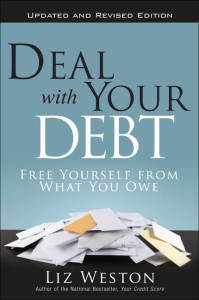Dear Liz: I am a 67-year-old college instructor who plans to teach full time for at least eight more years. Last year I began collecting spousal benefits based on my ex-husband’s Social Security earnings record. Those benefits give me an extra $1,250 each month above my regular income. I have been using the money to pay down a home equity line of credit that I have on my condo. The credit line now has a balance of $29,000. I have about $200,000 in mutual funds and should have a small pension when I retire. (I went into teaching only a few years ago.) Would it be better for me to split the extra monthly $1,250 into investments as well as paying off my line of credit? The idea of having no loan on my condo appeals to me, but I wonder if I should try to invest in stocks and bonds instead.
Answer: Paying down debt is important, but opportunities to save in tax-advantaged retirement plans are typically more important. Fortunately, you probably have enough money to do both.
First investigate whether your college offers a 403(b) or other retirement program that offers a match. If it does, you should be contributing at least enough to that plan to get the full match.
Your next step is to explore an IRA. Since you’re covered by at least one retirement plan at work (your pension), you would be able to deduct a full IRA contribution only if your modified adjusted gross income as a single taxpayer is $59,000 or less in 2013. The ability to deduct a contribution phases out completely at $69,000.
If you can’t deduct your contribution, consider putting the money into a Roth IRA instead. Roth contributions aren’t deductible, but withdrawals in retirement are tax free. Having a bucket of tax-free money to draw upon in retirement can help you better manage your tax bill, which is why some investors opt to contribute to Roths even when they could get a deduction elsewhere.
People 50 and older can contribute up to $6,500 this year directly to a Roth if their income is under certain limits. (For singles, the limit for a full contribution is a modified adjusted gross income of $112,000 or less.) If your income is over the limit, you can contribute to a traditional IRA and then immediately convert the money into a Roth IRA, since there’s no income limit on conversions. (This is known as a “back door” Roth contribution.)
Since you’re so close to retirement, you don’t want to overdose on stocks, but you still need a significant amount of stock market exposure so that your money has a chance to offset future inflation. You might consider a balanced fund that invests 60% in stocks, 40% in bonds.
Once you’ve taken advantage of your retirement savings options, you can direct the rest of your Social Security benefit to paying off your home equity line. These credit lines typically have low but variable rates. Higher interest rates are likely in our future, so paying this line down over time is a prudent move.



